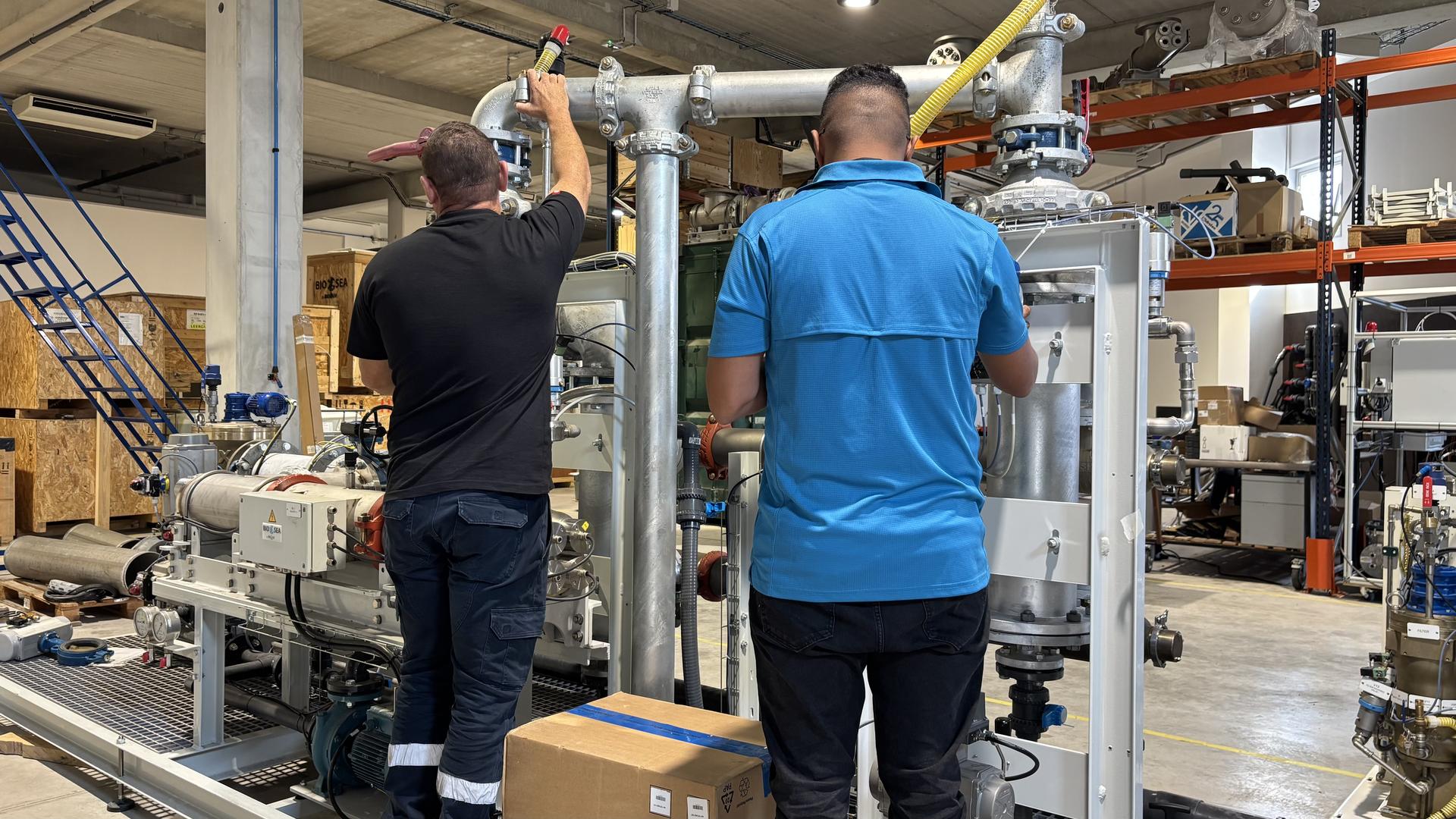BIO-UV Group Helps BWTS Operators Remain D-2 Compliant with New Performance Arrangement
One of the leading water treatment specialists BIO-UV Group has introduced a new Compliancy & Performance Agreement (C&P Agreement) solution for shipmanagers looking to ensure their BIO-SEA ballast water treatment systems remain regulatory compliant and operationally tip-top.
The new service agreement aims to address the challenges ship operators face maintaining regulatory compliance amid increasingly stringent ballast water management inspection regimes and operational demands on ship crews.
With over 30% of vessels failing D-2 compliance tests despite having installed type-approved systems, the C&P Agreement provides a vital framework for proactive system maintenance and support.
Too many shipowners still see ballast water treatment systems as ‘install-and-forget’ solutions. In reality, ballast water treatment systems require continuous maintenance and well-trained crews to operate them effectively. Neglecting these essentials not only threatens compliance but also risks damaging marine ecosystems.
Jean Philippe Picard de Muller, Head of BIO-UV Group’s Service Division
BIO-UV Group says that key maintenance procedures, such as air and water filter cleaning, UV lamp replacement and sensor calibration, are often overlooked. Even fully operational systems can fail if crew members are not properly trained to manage daily checks or identify irregularities such as pressure drops or unusual noises.
“Routine checks are essential,” J.P Picard de Muller said. “Crews need to verify valves are in the correct position, and any condensation is drained.
“Our Compliancy & Performance Agreement is the first line of defence against compliance failure by ensuring ship operators receive the technical support and spare parts they need to keep their BIO-SEA systems performing efficiently, in top condition.”
The C&P Agreement includes an annual onboard visit by BIO-UV Group’s expert technicians, who perform a thorough inspection and calibration of critical system components, including sensors and flow meters. The agreement also covers crew demonstrations and basic onboard training to reinforce operational confidence. Ship operators also benefit from special pricing on essential spare parts and additional services.
“This helps operators stockpile critical components and avoids costly delays linked to supply chain uncertainties or third-party dependencies,” said J.P Picard de Muller. “There is also an option for system maintenance during dry-dock periods allowing owners to align system upgrades with planned vessel downtime.”
For a fixed yearly fee per vessel, shipowners receive proactive annual onboard visits, calibration of critical sensors, verification of system functions, inventory checks and crew training.
IMO data reveals that 77% of shipowners report operational issues with their BWMS, citing crew knowledge gaps as a leading cause, while Port State Control officers are increasingly questioning crews on system operation and compliance procedures.
If a crew can’t demonstrate competence, even a fully functional system may not pass inspection. “Shipowners do need to prioritise continuous training, covering not only system operation but also troubleshooting and emergency procedures.
Charlène Ceresola, BWT Project Manager at BIO-UV Group
Indeed, port authorities have increased inspections to enforce the D-2 discharge standard, with reports indicating more than 30% of ships failing D-2 compliance inspections, often due to operational errors such as mixing treated and untreated water, regrowth of organisms and inconsistent system use. Regulators are also tightening administrative requirements. Nearly 60% of ballast water-related deficiencies stem from poor record-keeping.
In February 2025, updated IMO guidelines BWM.2/Circ.80/Rev.1 entered into force providing clarity with examples of entries and mandating more detailed records of all ballasting and deballasting operations, including system treatment status, actions in challenging water conditions and any non-compliant discharges.
“A well-maintained record book is as important as a well-maintained system,” Charlène Ceresola stressed. “Shipowners must audit documentation regularly to avoid detentions.”
Adding to the complexity, some systems installed years ago now face sustainability challenges.
“When manufacturers exit the market, shipowners risk being left without spare parts, software updates or technical support,” said Charlène Ceresola. “This jeopardises compliance even if the system was type-approved at the time of installation.”
BIO-UV Group advises shipowners to stockpile essential spare parts, establish support agreements with OEM, and consider system updates or upgrades during dry-dock periods.
“Non-compliance can lead to ship detentions, substantial fines and reputational damage. Meeting ballast water regulations is not just about ticking boxes,” Charlène Ceresola said. “Shipowners must act now to ensure their systems are reliable, their crews are trained, and their documentation is complete.”
About BIO-UV Group
For 25 years, BIO-UV Group has been designing, manufacturing and marketing water treatment systems using ultraviolet (UV-C), ozone, AOP and salt electrolysis for various applications: swimming pools, aquaculture, aquariums, industrial process water, wastewater and drinking water. In 2011, it added ship ballast water treatment to its range. The company’s products are industrialised in its specialised production sites in Lunel and Muret, France, as well as in Great Britain, which allows it to respond quickly to the specific requirements of its customers all over the world. The company, listed on the stock exchange since July 2018, has a consolidated turnover of EUR39.6 million in 2024 and a current workforce of 160 employees. More than 50% of the group’s sales are exported.

